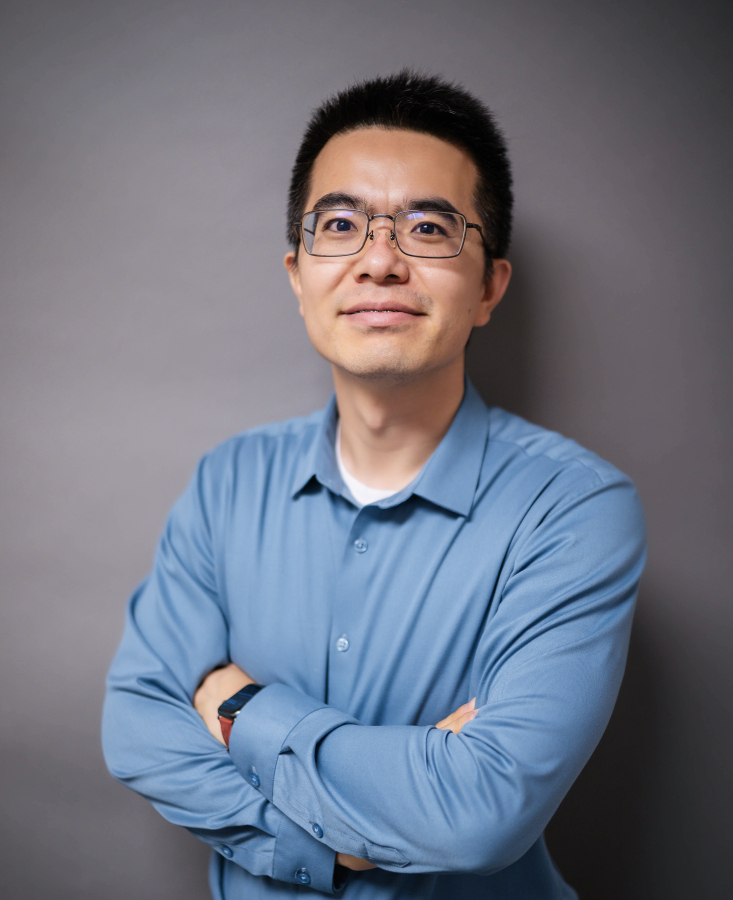Mechanical and Aerospace Engineering’s Assistant Professor Bo Zhao has been awarded $549,770 for his NSF CAREER proposal, “Understanding and Controlling Nonreciprocal Thermal Radiation Exchange Between Surfaces.”
The project seeks to challenge a centuries-old law, which would fundamentally change our understanding of the characteristics of light transport and potentially have a significant impact on the efficiency of solar energy harvesting and thermal management systems.
“Water flows because water at a higher elevation has more potential energy than water at a lower elevation; the flow is driven by this potential energy difference. What I do is another energy flow: not water, but sunlight,” said Zhao.
Sunlight also carries energy in its waves — electromagnetic waves — but flows in a slightly different way.
“Usually a high-potential object emits energy outwards, but for sunlight or other similar radiation or electromagnetic waves, the reverse can happen: something cold can also transport [energy] back to the hotter high-potential object. My research is trying to remove this constraint for light transport,” he said.
One of many reasons that this research is of interest is the potential for increased efficiency in solar energy capture. If sunlight could be made to only flow unidirectionally, without transporting any energy back toward the sun itself, then cascaded energy harvesting devices could allow for more complete and more useful collection of solar energy without waste due to reemission.
“From a fundamental perspective,” said Zhao, “what I do is try to break the so-called reciprocity of this transport process. I want to make light transport as one-way as possible.”
In other words, if reciprocity is currently a window through which light can travel in either direction, Zhao is working to create a one-way window, transparent only in one direction.
“There’s a very interesting, very old — classic — law, like Newton’s laws in mechanics, in our field of thermal radiation: Kirchhoff’s Law. Kirchhoff’s Law of thermal radiation has been around for nearly two centuries, and when I was doing my postdoc, I realized that we have the possibility to break that law,” he said. “That inspired me to keep working in this direction and look into how we can, first of all, enable that law-breaking effect, and second of all, leverage that to achieve new thermal and energy applications. It’s basically a new direction that hasn’t been sought before.”
“In that sense, I think this is a very unique and exciting opportunity. Much of this knowledge will be useful and transformable to other wave phenomena, such as mechanical waves, electron, and phonon. I think that eventually, the impact is going to be enormous.”
As part of the project, Zhao will also operate a YouTube channel called “Everything Thermal” to help bring accessible explanations of higher-level concepts and research in thermal photonics to students across the world.
“I realize the importance and how rewarding it can be if you can engage more and more people in science. Of course, as a teacher, we do that by going into the classroom, but we are living in this digital world, and people now have more and more easy access to digital resources. How do we leverage those opportunities to disseminate knowledge in a way that makes physics and engineering easier, more engaging, entertaining, and effective?”
“Everything Thermal” aims to do just that. Zhao is also excited to involve undergraduate students in the project, because “the best way to learn something is to teach it.”
“In that way, by making a video, they’re teaching themselves to explain the concept to other people. Students will therefore not only learn the concept, but also possibly find the process rewarding themselves. We will also be using various AI tools to create the videos. In a lot of ways, I think this is a nice vehicle for our undergraduate students to better learn engineering knowledge and AI tools, engage the public, and disseminate the knowledge that we have.”
The project is funded through February 2030. Further information and updates on Zhao’s research can be found at the Zhao Group’s website.
